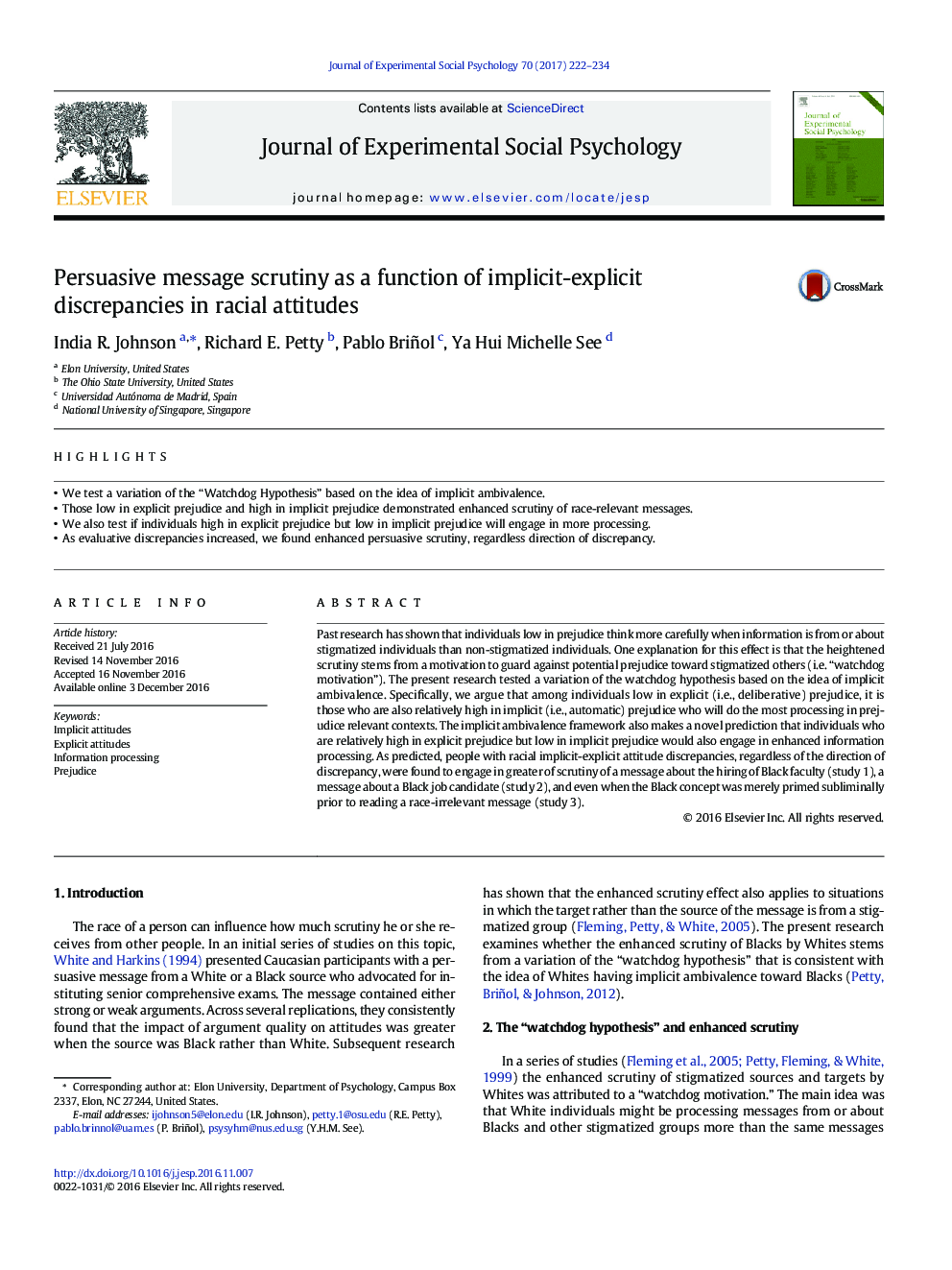| کد مقاله | کد نشریه | سال انتشار | مقاله انگلیسی | نسخه تمام متن |
|---|---|---|---|---|
| 5045645 | 1475853 | 2017 | 13 صفحه PDF | دانلود رایگان |
- We test a variation of the “Watchdog Hypothesis” based on the idea of implicit ambivalence.
- Those low in explicit prejudice and high in implicit prejudice demonstrated enhanced scrutiny of race-relevant messages.
- We also test if individuals high in explicit prejudice but low in implicit prejudice will engage in more processing.
- As evaluative discrepancies increased, we found enhanced persuasive scrutiny, regardless direction of discrepancy.
Past research has shown that individuals low in prejudice think more carefully when information is from or about stigmatized individuals than non-stigmatized individuals. One explanation for this effect is that the heightened scrutiny stems from a motivation to guard against potential prejudice toward stigmatized others (i.e. “watchdog motivation”). The present research tested a variation of the watchdog hypothesis based on the idea of implicit ambivalence. Specifically, we argue that among individuals low in explicit (i.e., deliberative) prejudice, it is those who are also relatively high in implicit (i.e., automatic) prejudice who will do the most processing in prejudice relevant contexts. The implicit ambivalence framework also makes a novel prediction that individuals who are relatively high in explicit prejudice but low in implicit prejudice would also engage in enhanced information processing. As predicted, people with racial implicit-explicit attitude discrepancies, regardless of the direction of discrepancy, were found to engage in greater of scrutiny of a message about the hiring of Black faculty (study 1), a message about a Black job candidate (study 2), and even when the Black concept was merely primed subliminally prior to reading a race-irrelevant message (study 3).
Journal: Journal of Experimental Social Psychology - Volume 70, May 2017, Pages 222-234
